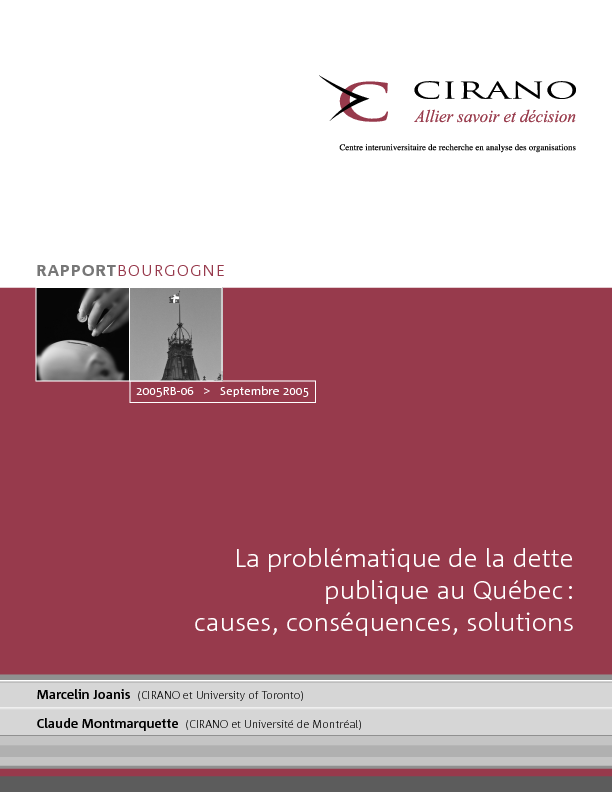La problématique de la dette publique au Québec : causes, conséquences, solutions
This is not a new observation: Quebec is highly indebted. Relatively speaking, Quebec is the third Canadian province with the most indebted government. Quebecers also have to bear the even greater burden of federal public debt. Despite this, the Government of Quebec still does not have an explicit policy on this issue, unlike the federal government. In fact, despite the achievement of a balanced budget in 1998-1999, Quebec's debt has continued to increase significantly and, over the past two fiscal years, the government has reported budget deficits.
The governments of Quebec and Canada have both experienced a decline in their public finances since the mid-1970s, incurring debt not only to finance their capital expenditures but also their annual operating expenses. This is primarily due to a series of macroeconomic shocks (oil price shocks, recessions), and then to the propensity of governments to spend beyond their ability to pay by relying on possible economic growth that has not materialized. Today's Quebec taxpayers therefore inherit not only a high level of debt but, above all, a debt that has essentially no tangible counterpart in terms of profits.
Public debt is a mechanism that allows the collection of taxes to be deferred for the financing of public expenditure. It allows the tax burden associated with certain shocks to be spread over time, to bring the tax burden and benefits associated with government spending closer together over time, and to redistribute wealth between generations. However, the use of public debt is limited by a set of problems associated with high public debt. These problems concern public finances, macroeconomic conditions, economic efficiency, intergenerational equity and the political environment.
There is no consensus among economists on the optimal level of public debt. However, there is a relatively broad consensus, at least in Canada, that current debt levels are too high. In particular, Quebec now appears to be very far from the level of indebtedness it would have experienced if it had respected the "traditional rule", i.e. if it had gone into debt only to finance its capital investments.
There are three options for a government that wants to reduce its debt burden: rely on economic growth to "automatically" reduce the relative size of public debt, make annual repayments of part of the debt, or sell some assets and allocate the resulting amounts to debt repayment. The only recourse to the effect of economic growth is a risky policy. Debt repayment itself is characterized by a trade-off between short-term sacrifices (lower public spending or higher taxes) and greater flexibility in the future. Finally, the sale of assets must be considered with caution because of the importance of Crown corporation revenues in the Québec government's budget.
An appropriate policy for the Government of Quebec could include: the creation of an annual contingency reserve and a stabilization fund, the use of the reserve as often as possible to repay debt, and the sale of certain public assets to accelerate debt reduction. This proposal has the threefold advantage of increasing the credibility and prudence of Québec's budgetary policy, recognizing the need for certain short-term public investments and being an effective response to the future pressures that will accompany an aging population.
Translated with www.DeepL.com/Translator




